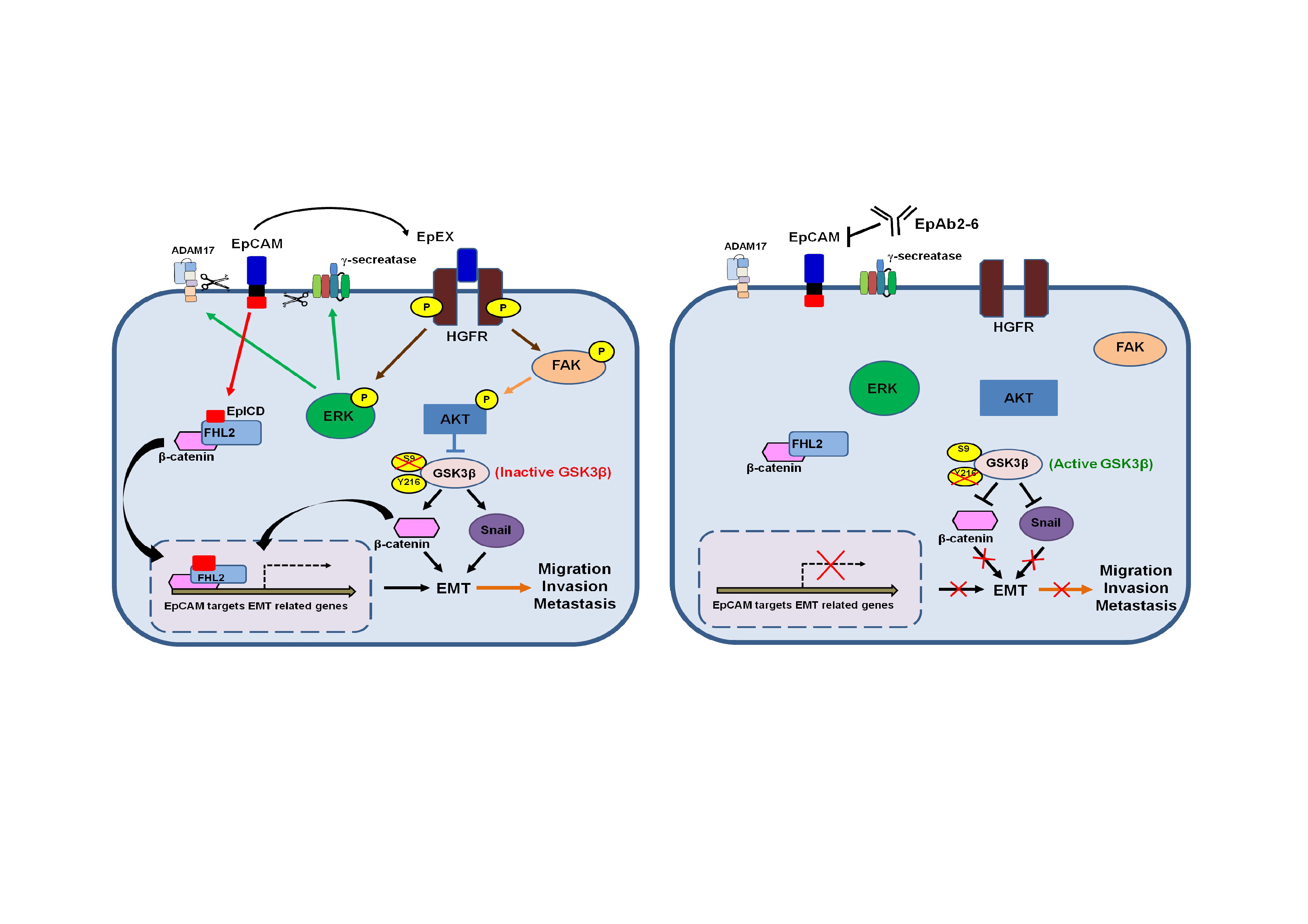Epithelial cell adhesion molecule (EpCAM) regulates HGFR signaling to promote colon cancer progression and metastasis
- Author:Chi-Chiu Lee, Chia-Jui Yu, Sushree Shankar Panda, Kai-Chi Chen, Kang-Hao Liang, Wan-Chen Huang, Yu-Shiuan Wang, Pei-Chin Ho and Han-Chung Wu
- Journal: Journal of Translational Medicine https://link.springer.com/article/10.1186/s12967-023-04390-2
The epithelial cell adhesion molecule (EpCAM) protein is widely thought to be a promising target for diagnostic tools and therapeutics that can be used in the clinical management of various cancer types. Recently, a study by Dr. Han-Chung Wu’s group at the Institute of Cellular and Organismic Biology, Academia Sinica, has greatly advanced our knowledge of how EpCAM-mediated cell signaling can promote cancer progression and metastasis. In addition, the study introduces a new therapeutic combination strategy for treating colon cancer.
Previous work has shown that high expression of EpCAM can promote tumor progression in many types of cancer, including colorectal cancer, and it is known that metastasis is a major reason for cancer treatment failure. Nevertheless, it remained unknown whether and how EpCAM signaling might be involved in colorectal cancer development and metastasis. In answer to this question, Dr. Wu’s group showed the extracellular domain of EpCAM (EpEX) can bind to the human growth factor receptor (HGFR) and thereby induce downstream cell signaling cascades in colon cancer cells. Furthermore, the group found that EpEX acts cooperatively with the receptor’s cognate ligand HGF to activate HGFR signaling. The study authors then examined the functional role of EpEX in colorectal cancer cells, finding that it is involved in cell growth, epithelial-to-mesenchymal transition (EMT), invasion and metastasis, and that these cellular characteristics rely on activation of HGFR-downstream signaling, including ERK and FAK-AKT pathways. Furthermore, EpEX was found to be involved in the stabilization of active β-catenin and Snail protein via suppression of GSK3β activity. Importantly, the authors tested the anticancer effects of an EpEX-neutralizing antibody called EpAb2-6, which could prevent EpCAM signaling and induce apoptosis in the cancer cells. Treatment with EpAb2-6 also inhibited signaling crosstalk between EpCAM and HGFR. Finally, the authors tested the effects of a novel drug combination consisting of EpAb2-6 and a small-molecule inhibitor of HGFR (crizotinib), finding that the combination significantly inhibits tumor progression and prolongs survival in metastatic and orthotopic animal models of colon cancer.
These findings illuminate the molecular mechanisms by which EpCAM signaling promotes colon cancer invasion and metastasis, and the study further suggests that a combination of EpAb2-6 and crizotinib could be an effective strategy for treating cancer patients with high EpCAM expression. The insights gained from this study may be helpful in the development of novel anticancer therapeutics that can inhibit metastasis and improve patient outcomes. The study was published in the Journal of Translational Medicine, with Dr. Chi-Chiu Lee as the lead author.
Paper link:
https://link.springer.com/article/10.1186/s12967-023-04390-2


